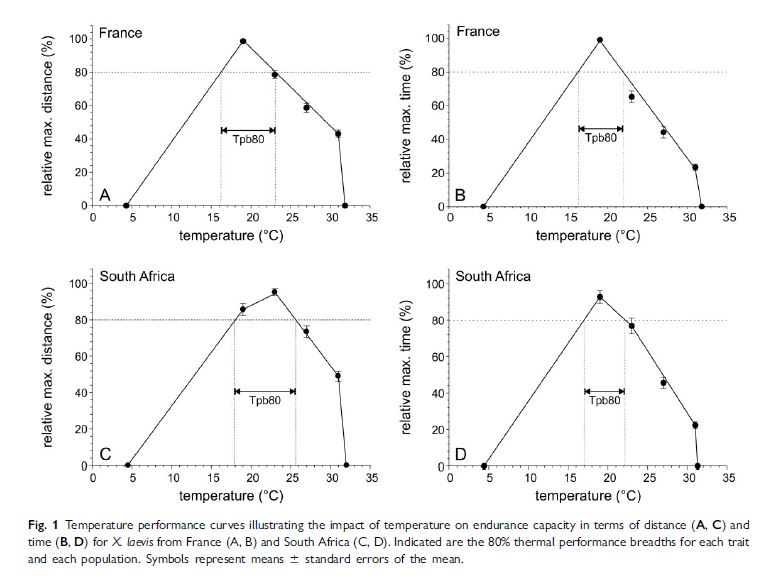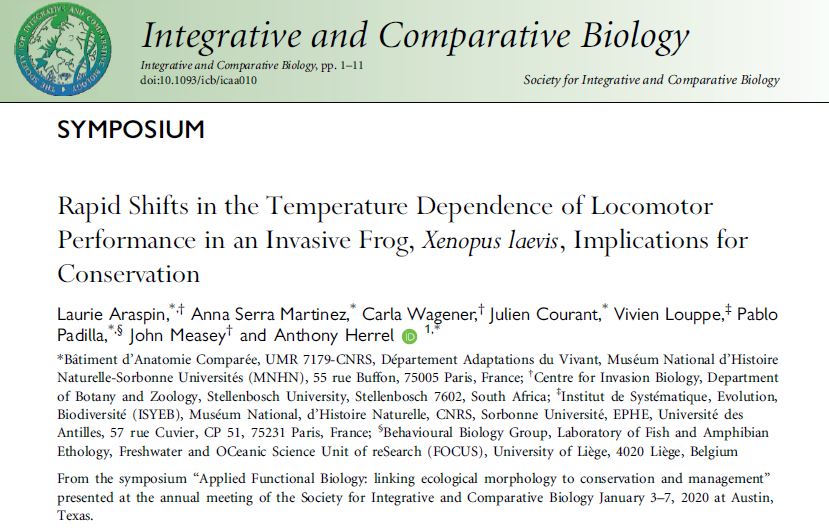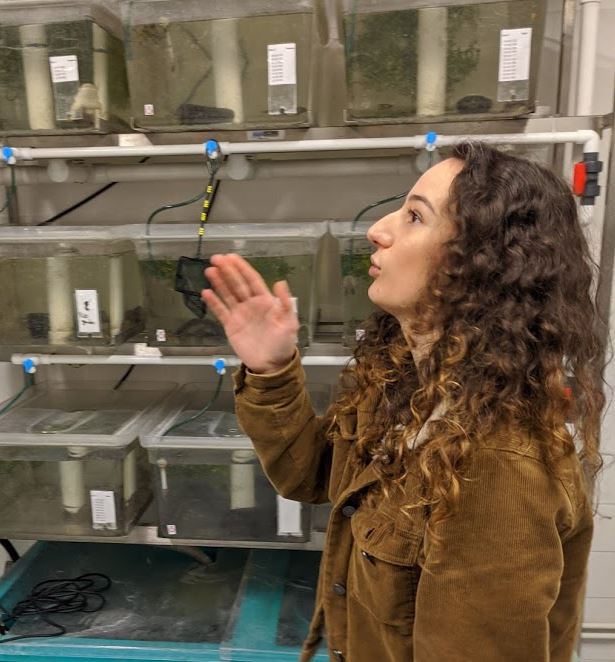Laurie's new paper shows rapid adaptive shifts for invasive Xenopus to cooler France
In the first paper of her PhD, MeaseyLab student Laurie Araspin (jointly supervised by Anthony Herrel of the NMHN Paris) shows how adult Xenopus laevis introduced to France in the 1980s have already shifted their temperature dependence of locomotor performance.
The work has particular interest as it shows how rapid adaptations in invasive species allows them to function in different environments to that of their native range. In this study, Laurie used adults collected from the South African Cape and subtropical KwaZulu-Natal (watch a video of that collection here). Despite these massive differences in collection localities, once they were acclimated in the lab there was no difference in their performance. The French animals, however, maintained a massive difference left shift (to cooler temperatures) in their thermal performance.

This is just the start of Laurie's exploration into the rapid adaptive physiological shifts shown by invasive populations of X. laevis when compared to their native South African populations. Despite COVID restrictions, Laurie's work continues in Paris and in 2021 we hope to have her in South Africa sampling some of the more extreme environments for African Clawed Frogs.
To read the paper in full:
Araspin, L., A. Serra Martinez, C. Wagener, J. Courant, V. Louppe, P. Padilla, J. Measey and A. Herrel (2020) Rapid shifts in the temperature dependence of locomotor performance in an invasive frog, Xenopus laevis, implications for conservation. Integrative and Comparative Biology 60(2):456–466 https://doi.org/10.1093/icb/icaa010 pdf


